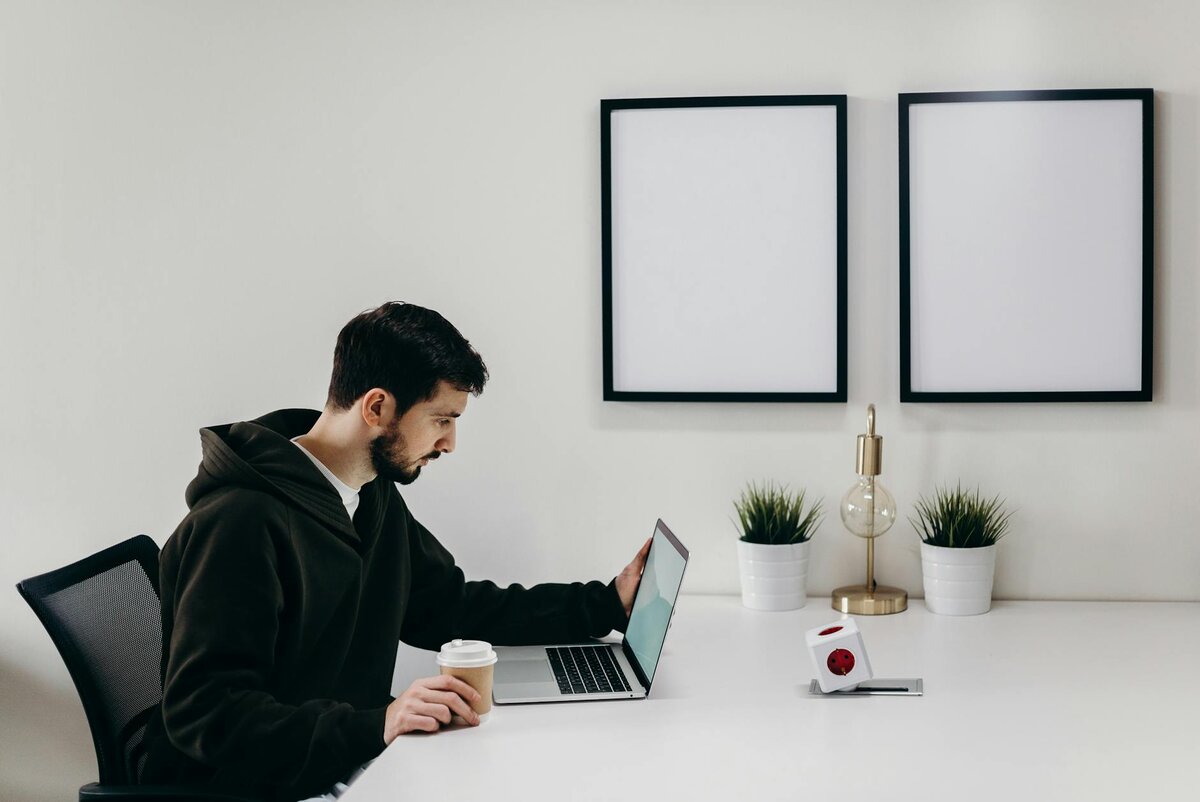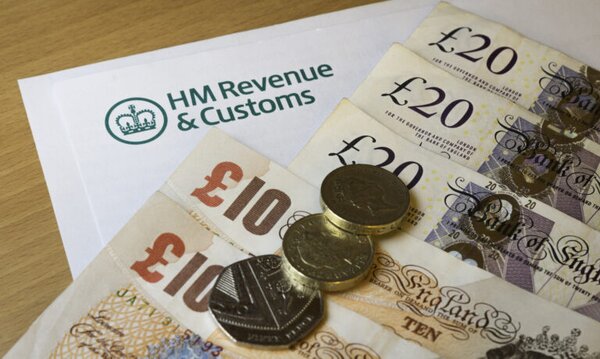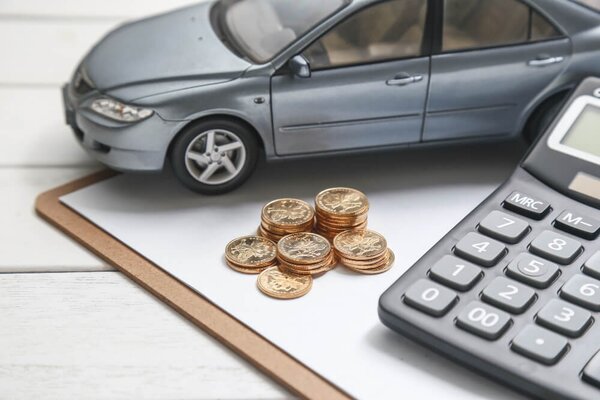Starting your own business feels expensive, doesn't it?
Most new business owners watch their savings disappear during those first few months. However, the good news is that many of those early expenses can actually reduce your tax bill.
Understanding how to add startup costs for self employed tax calculations could save you hundreds of pounds. Additionally, these deductions often make the difference between profit and loss in your first trading year. Claiming each business expense as an allowable business expense is key to reducing your tax bill, as it allows you to offset these costs against your income before you pay tax.
In this article, we’ll cover everything you need to know about claiming startup expenses as a self-employed individual. Furthermore, you’ll discover which costs qualify and how to claim them properly. Claiming tax relief on these expenses helps you pay tax only on your actual profits.
What exactly counts as startup costs for self employed individuals?
Startup costs for self employed means the legitimate business expenses you paid before you actually started trading. Think of it as all the money you spent getting ready to launch your business properly.
Your laptop, business cards, website development, and training courses all count as valid expenses. Moreover, HMRC lets you claim expenses from up to seven years before you started trading.
In addition to these, other types of business expenses include fixed assets such as equipment and office furnishings, which are claimed as capital expenses through capital allowances rather than as immediate deductions. Capital expenses are for long-term assets like office furniture or computers, while revenue expenses are day-to-day costs such as printer ink, paper, or stock. Raw materials used for goods you sell, and staff costs like wages, are also claimable if they directly relate to your business.
Maintenance costs for business premises or equipment can be claimed, and an insurance policy—such as public liability or professional indemnity insurance is an allowable expense. Professional subscriptions to relevant trade bodies or professional organizations are also allowable if they are directly related to your business.
If you use your mobile phone for business, you can claim a proportion of the costs, but you must account for any personal use. If you work from home, you can claim a share of your mortgage interest, council tax, and electricity bill, apportioned based on business use (for example, dividing by all the rooms in your home). Printer ink and other consumables are claimed as revenue expenses.
Finance arrangements such as bank charges or credit card fees are allowable, but personal loan repayments are not. Event hospitality and parking fines are not allowable business expenses. You can claim accommodation costs for business travel, but you must keep records to distinguish between business and personal costs.

When can you start claiming these startup expenses?
You can claim expenses from up to seven years before you began trading. That's a huge window of opportunity that most people completely miss unfortunately.
The catch is proving you had genuine intention to start the business at that time. HMRC wants to see clear evidence you were serious about launching your venture.
Keep detailed records with receipts, invoices, and bank statements for absolutely everything you purchase. These costs get claimed in your first year's accounts as pre-trading expenses.
HMRC might ask for proof that expenses were genuinely business-related at a later date. Dating your records properly therefore becomes crucial for successful claims and avoiding future complications.
Your business bank statements help prove both timing and purpose of each expense clearly. Even personal card payments count if they were specifically for business setup activities.
How do you actually add these costs to your tax return?
Include startup costs in your first year's business expenses section on your return. Use the "other business expenses" category if no specific heading fits your particular situation.
Attach a separate sheet listing all pre-trading costs with dates and amounts clearly stated. Make sure total startup costs don't seem unreasonable compared to your first year's projected income.
Consider spreading large expenses over multiple years if that benefits your tax position more. Your accounting software should handle the technical calculations automatically once you input the data.
Keep a simple spreadsheet tracking every startup expense with its date and clear purpose. Group similar expenses together to make your return cleaner and much easier to follow.
Remember to include VAT amounts if you're VAT registered from day one of trading. Professional advice becomes worthwhile when startup costs exceed a few thousand pounds in total.

What startup costs can't you claim as allowable expenses?
Personal living expenses during the business setup period don’t count at all unfortunately. Costs for failed business ventures that never actually started trading also won’t work for claims.
Expenses too far removed from your actual business activities will get rejected by HMRC. Capital items like expensive equipment should be claimed as assets rather than immediate expenses.
Any costs already claimed through other tax reliefs or schemes are completely off limits. Holiday expenses don’t magically become business costs just because you had some meetings during them. Event hospitality and entertaining clients or suppliers are not allowable business expenses.
Personal subscriptions that you might use occasionally for business purposes must stay personal expenses. Parking fines and other penalties cannot be claimed for tax relief. Home improvements that aren’t specifically for business use won’t qualify for any deductions either.
General living costs while you planned your business don’t count towards your claims. Be completely honest about what’s genuinely business-related versus your normal personal spending habits.
Are there any limits on startup cost claims?
No specific monetary limit exists on legitimate pre-trading expenses that you can claim. However, costs must always be "wholly and exclusively" for business purposes without exception.
HMRC naturally looks more closely at unusually high startup cost claims for obvious reasons. Consider the proportionality test carefully - costs should seem reasonable for your specific business type.
A web design business claiming £50,000 in startup costs would definitely raise eyebrows. Professional advice becomes worthwhile for claims exceeding £10,000 in total value typically.
Document everything thoroughly to justify larger claims if questioned by HMRC later on. Your industry type significantly affects what seems reasonable for genuine startup expenses too.
Tech businesses naturally have higher equipment costs than basic consulting businesses would need. Keep your claims proportionate to your expected business income levels for the first year.

Could simplified expenses make your tax return easier?
If you’re a self employed sole trader, managing your business expenses can feel overwhelming especially when it comes to separating personal and business use for things like phone bills, electricity bills, or travel expenses. That’s where simplified expenses come in, offering a straightforward way to claim allowable expenses and keep your tax return process hassle-free.
Simplified expenses let you use flat rates for certain business costs, such as vehicle expenses, working from home, or even business premises used for both personal and business purposes. Instead of calculating the actual costs and apportioning them between personal and business use, you simply apply HMRC’s flat rates. For example, if you use your car for business travel, you can claim 45p per mile for the first 10,000 miles and 25p per mile after that. If you work from home, you can claim a flat rate based on the number of hours you work each month making it much easier to claim business expenses without poring over every utility bill.
One of the biggest advantages of using simplified expenses is the time you save. You don’t need to keep detailed records of every single business cost or worry about calculating the exact percentage of business use for your home or vehicle. This can be especially helpful for sole traders who want to focus on running their business rather than getting bogged down in paperwork. Plus, using flat rates can help reduce the risk of mistakes on your tax return, ensuring you claim allowable expenses correctly and avoid issues with HMRC.
Don’t forget, as a self employed sole trader, you’re able to claim a wide range of allowable business expenses beyond simplified expenses. These include:
- Business equipment and machinery
- Rent and rates for business premises
- Utility bills (electricity, gas, water)
- Phone and internet bills
- Travel expenses (fuel, parking, accommodation)
- Subsistence costs (food and drink while travelling for business)
- Professional fees (accountancy, legal fees)
- Insurance premiums (public liability insurance, property insurance)
- Bank charges and financial charges
By claiming all the allowable expenses you’re entitled to, you can reduce your taxable profit and pay less income tax. Keeping up to date and accurate records is essential for every expense claim, whether you use simplified expenses or actual costs.
What records should you keep for startup cost claims?
Original receipts and invoices for every single expense you plan to claim are essential. Bank statements showing payments made for business setup costs work perfectly as supporting evidence.
Written explanations linking each cost to your business preparation help enormously during any review process. Diary entries or emails proving your intention to start trading provide excellent evidence too.
Professional correspondence about business setup activities supports your claims very well with HMRC officials. Store everything both digitally and physically to avoid losing any crucial documentation permanently.
Take photos of receipts immediately after purchase to prevent fading or accidental loss over time. Organise records by month or expense type for much easier reference when completing returns.
Cloud storage ensures you never lose important documents unexpectedly due to computer failures. Review your records annually to ensure everything stays complete and easily accessible when needed.
I learned this lesson the hard way when my laptop crashed last year. Fortunately, I'd backed up all my startup cost receipts to cloud storage beforehand.

Ready to claim those startup costs properly?
Claiming your startup costs correctly can save hundreds or thousands during your first trading year. The secret lies in keeping excellent records and understanding exactly what qualifies genuinely.
Don't let valuable deductions disappear because of poor documentation or general confusion about the rules. Pie is the UK's first personal tax app, helping working individuals manage their responsibilities easily.
It's the only self assessment solution offering integrated bookkeeping, real-time tax calculations, and expert advice. Ready to maximise your startup cost claims while staying compliant with all regulations?
Let Pie handle the complexity while you focus on growing your business successfully.











